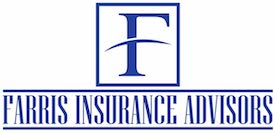
What is Collision Coverage?
Collision coverage provides protection in the event your vehicle hits another vehicle or object. This coverage pays for damages to your vehicle in which you are responsible. Collision coverage does not pay for the damage to other vehicles and/or properties damaged due to you being at fault. The property damage limit under the liability portion of your auto policy pays for damages to other vehicles/properties. Of note, if you hit a deer with your vehicle, damages to your vehicle are paid out under the comprehensive section of the auto policy.
There are no limits set for collision coverage. Only deductible levels are set. However if the cost to repair the damages to your vehicle is more than the vehicle is worth, than most insurance companies will “total” you car. This means the insurance company pays the actual cash value of what the car is worth. Actual cash value settlements take into account depreciation. Keep in mind if you have a vehicle that is 3 years old or less, some insurance companies will offer repair/replacement coverage. This option provides a replacement cost loss settlement for your vehicle. Replacement cost coverage does not take into account depreciation, thus you receive more money for your vehicle. Talk with your agent to see if your insurance company offers repair/replacement coverage.
Is Collision Coverage Required?
If your vehicle is financed or leased, then yes you need to have collision coverage. Lenders will require collision coverage on your auto insurance policy to protect their financial interest. As long as payments are being made to another party for your vehicle, the other party technically still owns the vehicle. When a collision loss settlement is paid on your vehicle, the lender will expect that money to be paid towards the loan balance. In some cases, such as a total loss, the loss settlement check may be written out to you the policyholder and the lender.
If you no longer owe payments on your vehicle you are not required to have collision coverage. However, in most situations it is still smart to carry collision coverage. Talk with your local insurance agent about whether or not you need collision coverage.


